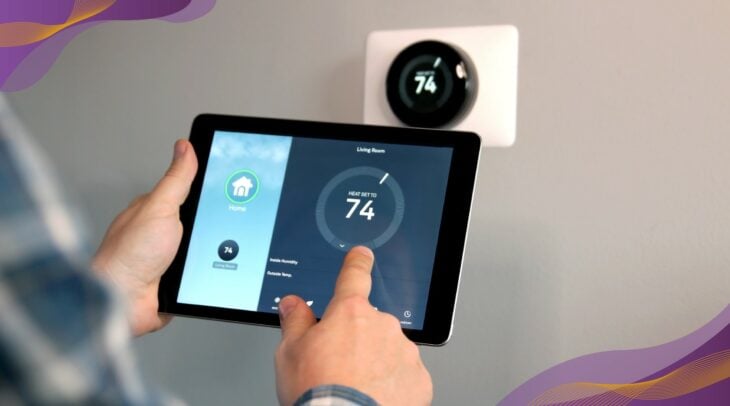
Top 10 Tips to Reduce Monthly Spending
Managing personal finances in the current economic environment can feel like navigating a complex maze. Increased costs of living, inconsistent economic forecasts, and endless discussions of inflation are accompanied by the unavoidable shopping demands of everyday life. With many in New Mexico finding that they are overspending each month, the journey toward financial stability can feel like an unrealistic goal. By adopting some practical strategies, however, you can effectively reduce your monthly spending and pave the way to a stress-free financial future.
Cutting back on monthly spending can feel like “missing out” on things and experiences in life. It’s about making smart choices that align with long-term goals and your values. Reducing monthly spending is actually about taking control of your own financial story, step by step, with achievable daily behaviors and deeper lifestyle changes that generate profoundly positive impacts on your financial well-being.
Getting Started
To know where you’re headed, you must first know where you are. Help identify your major spending areas by reviewing all transactions in bank statements, credit card bills, and any other accounts that are used for expenses. Look for patterns, including subscriptions and non-essential expenditures, that could be reduced or eliminated entirely. Once you have a good understanding of your spending habits, consider the following 10 tips for reducing your monthly spending even further:
1. Refinance High-Interest Loans
Refinancing loans, particularly high-interest ones like credit card debts, can reduce the amount you pay in interest and lead to lower monthly payments. Consider debt consolidation to place multiple high-interest debts into a personal loan with a lower interest rate, simplifying payments and reducing overall costs.

2. Review Insurance Policies
Periodically review and compare insurance policies (auto, home) to ensure you’re getting the best rates and coverage for your needs. If you stay with your current insurance provider, make sure that you’re receiving any applicable loyalty or good driver discounts.
3. Use Cashback and Rewards Credit Cards
If you use credit cards, opt for ones that offer cashback or rewards that align with your spending habits, but commit to paying off the balance each month to avoid interest charges. Read the Top 10 Tips To Improve Your Credit By Using Credit Cards to learn how sensible use of credit card accounts can up your credit score.
4. Be Energy Efficient
Implement energy-saving practices like using LED bulbs, unplugging electronics when not in use, and optimizing the use of heating and cooling systems. Use other energy-efficient practices like washing clothes in cold water and air-drying them. Prepare your home for the winter or summer seasons to prevent expensive repairs later and to ensure the most efficient use of energy in your abode.

5. DIY Projects and Repairs
Learn to do simple home repairs and projects yourself instead of hiring out to save on expensive labor costs. If a project is critical but beyond your skillset, discover how to pay for home renovations to ensure that you use the best financing option.
6. Negotiate Bills
Negotiate better rates or discounts with cell phone or internet providers, especially if you’ve been a loyal customer or have seen a better advertised rate elsewhere. Consider switching to a more affordable cell phone plan without long-term contracts and extra fees.
7. Carpool or Use Public Transportation
Reducing the use of a personal vehicle by carpooling or using public transportation can save on fuel, parking, and maintenance costs. Look for local carpool or rideshare opportunities with coworkers or online resources like Carpool World.

8. Start Meal Planning and Couponing
Plan your meals for the week, create a grocery list, and shop in bulk for non-perishable items. Make use of coupons, store discounts, and loyalty programs. Grocery apps, including apps from retailers, offer rewards and incentives to frequent and/or loyal customers.
9. Switch to Reusable Items Where Possible & Shop Second-Hand
Purchase reusable items such as cloth towels, rechargeable batteries, and refillable water containers. Buy clothing, furniture, and other items second-hand from thrift stores, garage sales, and online marketplaces for significant savings on these types of items.
10. Limit Entertainment & Eating Out Expenses
Reduce spending on movies, concerts, and other entertainment by opting for community events instead. Cancel cable TV in favor of free and low-price streaming services or over-the-air TV options. Take advantage of free resources at public libraries, like books, TV shows, and online courses. Instead of purchasing movies, for example, use apps like Kanopy that allow you to use your public library card to stream ad-free video movies free of charge.
Be mindful of how often you eat out — cutting back by one or two restaurant visits per month adds up to significant monthly savings. Cost-effective date ideas, meal planning and cooking at home also provides a healthier and more consistent culinary experience.

Other Strategies to Help Save Money Each Month
- Keep your money in a high-yield savings account: By keeping your savings in a high-yield savings account, you can earn more from your deposits, which compounds over time.
- Open a Certificate of Deposit (CD): Certificates of Deposit, also known as Share Certificates, usually offer higher interest rates than other savings accounts, in exchange for locking in your money for a set period.
- Automate deposits into your savings account: Automating your savings ensures that a portion of your income is saved before you have a chance to spend it. This “pay yourself first” strategy is effective for building savings without needing to actively think about transferring money each month.
- Automate monthly payments for utility bills, cell phone, or credit card payments: Automating your monthly payments can help avoid late fees and sometimes even qualify you for additional discounts.
- Pay down or pay off high-interest debt like credit cards: High-interest debts, such as those on credit cards, can be a significant drain on your finances. Paying off these debts more quickly or utilizing debt consolidation reduces the amount of overall interest you pay.
- Build an emergency fund: An emergency savings account or other fund is essential for financial security by providing a buffer against unforeseen expenses such as medical emergencies or vehicle repairs.
Need even more cost-cutting ideas? Check out 12 Ways to Reduce Spending and Financial Stress and 5 Tips to Protect Your Savings from Inflation.
Del Norte Credit Union is your ideal partner for a better future!
Reducing monthly spending is an important goal that requires a combination of smart habits and proactive financial strategies. Demonstrating personal discipline and a commitment to the above detailed tips can empower you to bring down your monthly spending effectively and sensibly.
For more information on how to cut monthly costs, other ways to reduce spending, and how to save money on bills, take advantage of our free Financial Fitness blog at dncu.com.
Take your savings to the next level with a DNCU Share Certificate account, tap into the best Savings Accounts in New Mexico, or open an Interest Checking or Money Market Checking Account today to earn more with your money. Visit a DNCU branch near you, make an appointment, or call us at 877-818-DNCU (3628) to get started.
Disclaimer: This article is for informational purposes only. For advice regarding your specific financial situation, please consult a financial planner or a trusted financial professional.

